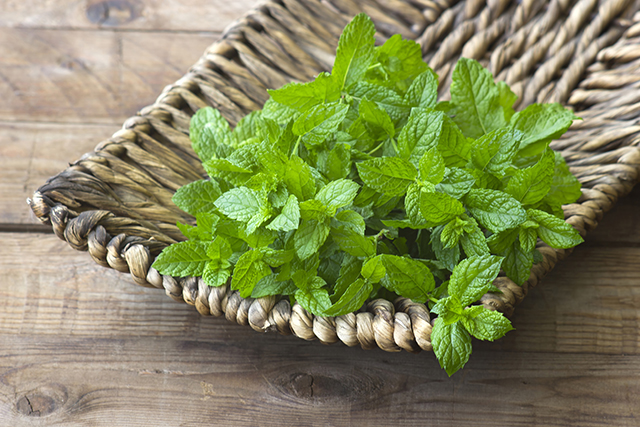Get a brain boost from spearmint: It improves both short term memory and ability to fall asleep, according to study
04/10/2018 / By Michelle Simmons

Spearmint was found to enhance the brain in older adults by improving both short-term memory and sleep habits, according to a study published in The Journal of Alternative and Complementary Medicine.
The study was conducted by a team of researchers who looked at the effects of a dried aqueous spearmint extract on cognitive performance, sleep, and mood in healthy older adults with age-related memory impairment.
In conducting the study, the research team gathered 90 participants with the use of an established database of volunteers kept by Biofortis Clinical Research, which is a contract research organization based in Illinois. The study participants were from 50 to 70 years old who willingly maintained their normal diet and exercise routines, and retained consistent sleep duration the night before study visits. In addition, they were tasked to answer questionnaires that assessed their cognition, mood, and sleep. After that, they were randomly assigned into three groups – a control group, a 600-milligram (mg) spearmint extract group, and a 900-mg spearmint extract group. They were tasked to take two capsules of the spearmint extract with breakfast for 90 days.
The results of the experiment revealed that participants who consumed the 900-mg spearmint extract exhibited a 15-percent improvement in quality of working memory performance in comparison to those who took the placebo. Those who took the 600-mg spearmint extract showed a nine-percent improvement in working memory performance. The participants in the 900-mg spearmint group also reported better ability to fall asleep.
“These results suggest that the distinct spearmint extract may be a beneficial nutritional intervention for cognitive health in older subjects with age-associated memory impairment,” the researchers wrote.
The study was funded by Kemin, the manufacturer that makes and distributes the spearmint extract used in the study.
Spearmint and its other health benefits
Spearmint (Mentha spicata) is an aromatic herb that belongs to the mint family. It is native to Europe and Asia and has been cultivated in North America and some parts of Africa. The perennial plant has fragrant leaves that are sharply serrated and arranged opposite the square stems, while its flowers are lilac, pink, or white in color.
It is commonly used in the kitchen. Its leaves are used fresh or dried to give flavor to different foods, such as sweets, drinks, salads, soups, cheeses, meats, fish, sauces, fruits, and vegetables. Moreover, its oil is used to provide flavor to toothpaste, candies, and jellies.
Aside from its culinary purposes, spearmint is also used for its therapeutic purposes. Spearmint contains vitamins, antioxidants, and other essential nutrients. Some people use spearmint to help relieve symptoms of nausea, indigestion, headache, toothache, cramps, sore throat, and gas in the digestive tract. Moreover, it can be topically applied to the skin to help lessen swelling due to nerve or muscle pain. The essential oil of spearmint also contains antifungal properties. Spearmint tea can also help reduce the level of androgens in women with hirsutism (male-pattern hair growth), according to a study published in Phytotherapy Research. Other health conditions that spearmint may effectively treat include arthritis, bad breath, common cold, diarrhea, muscle pain, fatigue, and stress. (Related: Eat more spearmint for better health.)
Read more news stories and studies on natural remedies by going to NaturalMedicine.news.
Sources include:
Tagged Under: aging, botanical medicine, brain function, brain health, cognitive function, cognitive problems, essential oils, herbal medicine, Herbs, memory, Mentha spicata, natural medicine, natural remedies, older adults, sharp memory, short-term memory, sleep, sleep habits, spearmint, spearmint extract, Spearmint oil
RECENT NEWS & ARTICLES
COPYRIGHT © 2017 BRAIN NEWS


















